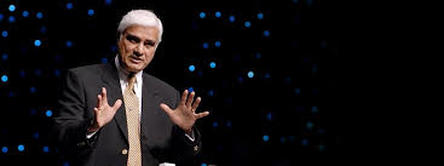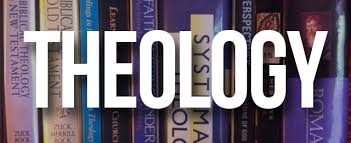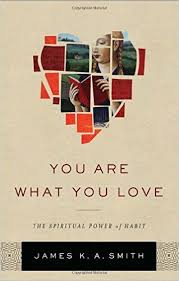|
I recently ran across a 2009 article where Christian apologist, speaker and author Ravi Zacharias talks about "Defending Christianity in a Secular Culture." The whole thing is good, and I encourage you to read it.
In a few places throughout the article, Zacharias draws attention to the value of equipping the church, in the face of a secular culture that is increasingly hostile or indifferent towards Christianity. Below are some short quotes from the article where we see this:
1 Comment
(This is an updated version of a post I initially composed on July 22, 2014.)
I've recently gotten a few questions from people asking very specifically how they can get emails with updated posts from the Brookside Institute blog, without having to remember to check in periodically on their own. They want to stay in the loop, but they won't always remember to go looking for new content. And when they do remember, they may not be near a computer or it may not be a convenient time. I love this question. I love it that people want to stay in the loop, and that we're providing valuable enough content that people want to stay engaged. Here's how I respond to this question: There's no way that I know of to get emails specifically from the Brookside Institute, providing updated content as new posts are published. (If I'm missing something on this, someone please let me know!) However that doesn't mean there's no way to conveniently stay in the loop. The solution is to subscribe to something called a "feed reader" that will collect the content (the "RSS Feed") you want from sites you subscribe to. Then, you simply monitor your feed reader and can conveniently stay up to date on the content you've chosen to subscribe to. Below I've included some detailed steps on how to subscribe to an RSS Feed and have it collected into a feed reader. Before I get into that, though, let me briefly share WHAT an RSS Feed is and WHY subscribing to the RSS Feed can be helpful. Earlier this week in Brookside's 365 Bible Reading Plan, we read through Luke 12. One of the statements Jesus makes in this chapter catches many off guard. Here's what Jesus says that have led some to understandably ask questions (I've heard questions about this more than once this week!): ...anyone who blasphemes against the Holy Spirit will not be forgiven" (Luke 12:10b). What?? An unforgivable sin? How should we think about this?
A few good goals in reading books are (1) how can this book expand my horizons in certain areas? (2) how can I understand the author, such that I can articulate what he or she thinks about this subject? and (3) how can this book be a resource for me? Or, more succinctly stated, good goals for reading books are expanded horizons, understanding others, and accumulating (re)usable resources.
If these are some of my primary goals for reading, that shapes HOW I read books. For example, with some books, I can identify how this book can be a continuing resource for me without reading every word on every page. Or I can mine a particular chapter in a book to have my horizons expanded in that specific area, without having to read every other chapter. And then there are those books I spend LOTS of time in - reading and re-reading them, underlining and making notes in margins, and discussing with others. I've created the acronym R.E.A.D. as a helpful way for me to consider HOW I want to work through a book, such that it meets one or more of these goals stated above. In case this is helpful for you as well, here's what R.E.A.D. stands for and how I try to use it. (As you read, keep in mind this acronym is a device used to aid reading well - don't look for overly technical precision or force some of the analogies too far!) On Thursday and Friday of last week, I attended the Global Leadership Summit, a leadership conference I've attended for probably the last 10-12 years or so. The Summit features a diverse faculty of presenters - some I've heard of before, some I've not - and every year I walk away having learned worthwhile lessons that can shape my leadership and ministry. (Check out some of the ways I benefited from previous years' Summits by clicking here and here.)
This year, one of the things that grabbed my attention most wasn't one of the speakers (though certain speakers did grab my attention as well), but one of the video segments they showed between speakers on Thursday. This segment featured fighter pilot instructor Lt Colonel Mark "Kaiser" Schmidt, and highlighted the influence he was having in his role. What stood out to me what that this instructor - this teacher - wasn't known primarily for technical expertise. To be fair, I'm sure he is very competent technically. He's good at what he does as a pilot, or he wouldn't have gotten to where he is as a fighter pilot instructor. But what what came again and again in the video is that Kaiser's influence comes through in how he pairs competence with care and character. Kaiser doesn't just see his role as passing along information; he wants to help his pilots become better people. One quote that I jotted down from the video captures this: "Our wingmen won’t remember what I taught them about basic fighter maneuvers. But they’ll remember how they felt around me. They’ll remember that I cared.” As someone who does a fair amount of teaching myself, I was grateful for both the encouragement and the challenge Kaiser's example offers. I'm not a fighter pilot instructor; I teach a lot of Bible and theology. But the lesson has obvious overlap: I don't want to be so focused on technical competence in my own field of study that I neglect the valuable role that care and character plays in the broader teaching relationship. Good stuff. Thanks for the reminder, #GLS16. Earlier this week I posted six definitions of theology from "the pros" - evangelical scholars who are worth listening to as we consider what theology is. As helpful as these definitions are, I've also crafted my own definition of theology that tries to not only articulate what theology is, but also works to clarify in one definition where Christian theology is (ultimately) sourced, how far it reaches, and what it's for. I'll simply include my working definition of theology below, and then expand briefly on each of these areas.
Again, I've tried to be intentional in this definition - clarifying where Christian theology is (ultimately) sourced, how far it reaches, and what it's for. Let's look at each of these:
What is Christian theology? Theology is a combination of the Greek words "theos" (God) and "logos" (word). Most simply and straightforwardly, then, theology is "words about God" or "the study of God."
But theology isn't JUST the study of God in some compartmentalized, isolated fashion. Because once we start to study and think about God as Christians, we discover that who God is and what God has done has implications for us and the way we live our lives. Whether directly or indirectly, theology influences the way we think, value, and feel about a myriad of other things. Knowing this, many theologians have worked to "tease out" a fuller definition of theology that (1) captures this comprehensive scope of theology and (2) keeps us focused on what theology is for. Here are 6 such "professional" definitions of theology from evangelical scholars (listed in no particular order): In his thought-provoking (and very often insightful!) book You Are What You Love: The Spiritual Power of Habit, author James K.A. Smith reminds us that Christian discipleship isn't only about what you know; it's also about what you love. (That right there is a statement we should marinate in and meditate on, by the way.) The book teases out what this can mean for the Christian and in the life of the local church. Is desire really that big of a deal? How are our loves shaped? What role does the local church play in this?
Smith then goes on towards the end of his book to apply the concepts he's developed to other specific contexts (family, education, vocation). I want to BRIEFLY highlight a small slice of what Smith says about Christian education, since it overlaps with so much of what we want to be about at the Brookside Institute. This last Sunday I preached on "The 'Why?' Question" of Suffering from Job 1:1-2:10. (To find the message, click here and scroll down to the sermon preached on July 31, 2016.) The point I kept making from Job is this: "As you wrestle through the WHY question of suffering, focus on WHO God is and trust in Him." In my opinion, there was no better song to end this message with than with the old hymn, "It Is Well," written by Horatio Spafford in the late 1800s. Not only do the lyrics of "It Is Well" reinforce the point I was trying to make, but the story behind the song is powerful. Spafford was a successful man who experienced deep suffering himself - losing much of his wealth and 5 children. His song is an example of someone who - in the midst of suffering - focused on God and trusted in Him. I encourage you to check out this brief video I found that tells the story behind this famous hymn. It's less than 5 min and will be worth the time spent watching it. |
Tim WiebeChristian. Husband. Father. Pastor. Learner. Contributor. Reader. Categories
All
Archives
June 2024
|
© 2014-2024 | 11607 M Circle, Omaha NE, 68137 | www.thebrooksideinstitute.net









 RSS Feed
RSS Feed
